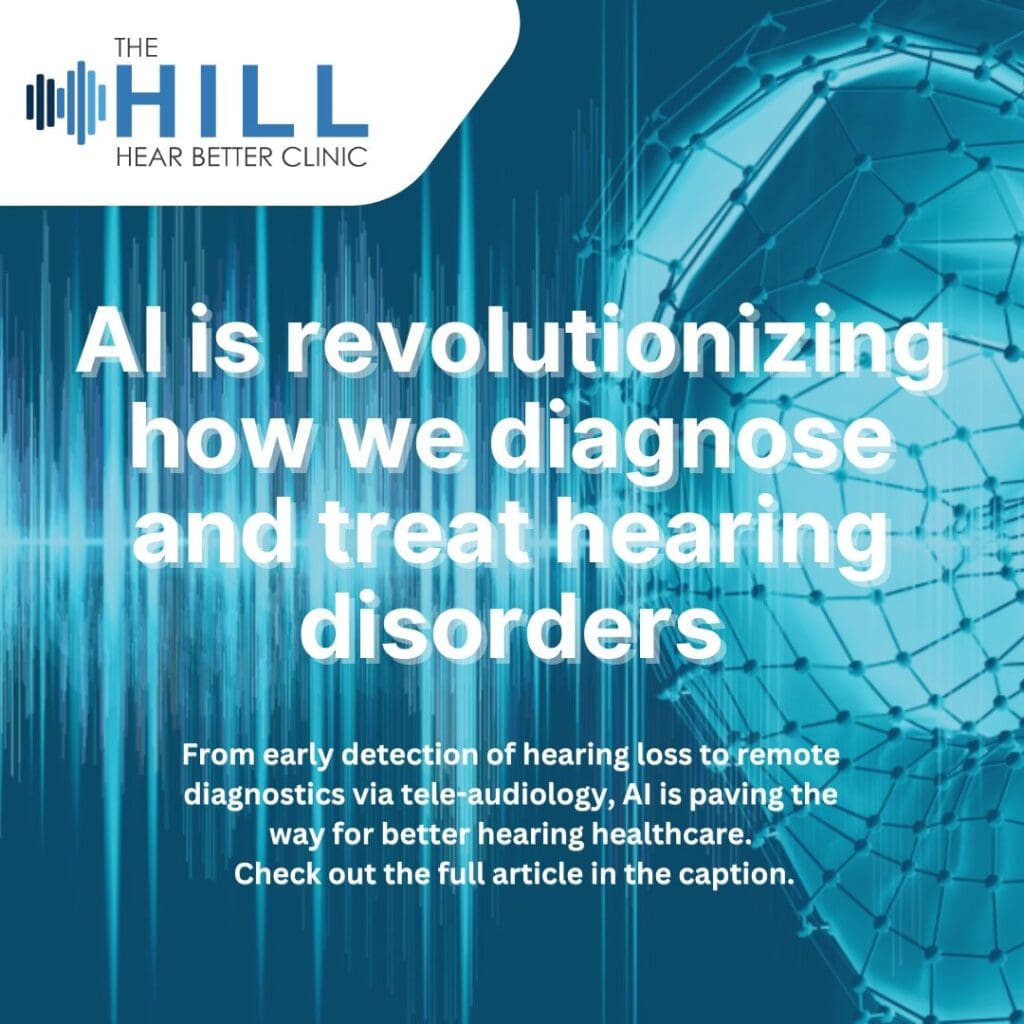
Artificial Intelligence (AI) is rapidly transforming the landscape of audiology, offering new avenues for diagnosis and treatment. In the recent review, Diagnostic Applications for Artificial Intelligence in Audiology, Dr. Ryan Hill provides valuable insights into the impact and potential of AI in this field.
Enhancing Diagnostic Accuracy
Dr. Ryan Hill emphasizes the significant improvements AI can bring to diagnostic accuracy. He states, “AI algorithms can analyze complex audiometric data faster and with greater precision than traditional methods, enabling earlier detection of hearing impairments.” This precision allows for more accurate and timely diagnosis, which can lead to better patient outcomes.
Continuous Learning and Adaptation
One of the standout features of AI is its ability to learn and adapt over time. Dr. Hill highlights this, saying, “The iterative nature of AI means it gets better over time. As we feed more data into these systems, their diagnostic accuracy improves, potentially leading to more personalized and effective treatment plans.” This continuous improvement is crucial for advancing audiological care.
Improving Accessibility
AI also has the potential to make audiology more accessible. Dr. Hill notes, “AI-powered diagnostic tools can be deployed in remote areas, providing essential services to populations with limited access to audiologists. This democratization of healthcare is one of the most exciting prospects AI offers.” By extending reach to underserved areas, AI can bridge gaps in healthcare access.
Applications of AI in Audiology
The review outlines various applications of AI in audiology, from speech recognition in noisy environments to automated hearing aid fitting. Dr. Hill believes that ongoing research and collaboration between audiologists and AI experts will pave the way for innovative solutions. “These advancements,” he says, “will enhance patient care and provide audiologists with powerful new tools.”
AI is set to play a pivotal role in the future of audiology. Experts like Dr. Ryan Hill are at the forefront of advocating for its integration into clinical practice. As AI technology continues to evolve, its potential to improve diagnostic accuracy, accessibility, and patient outcomes becomes increasingly evident.
